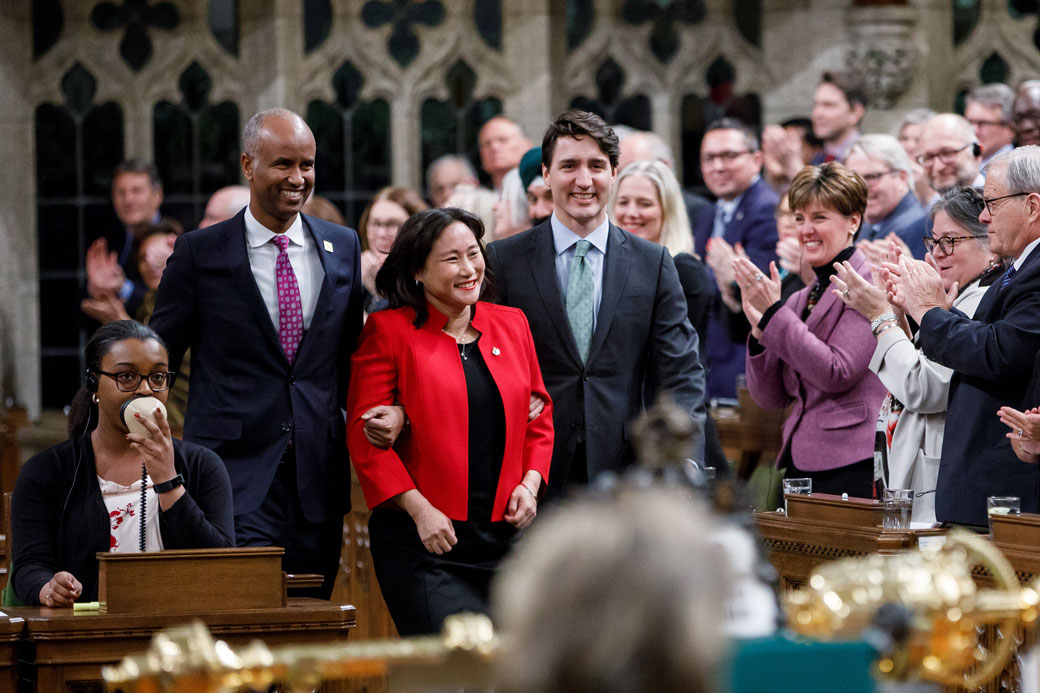To all appearances, the Trudeau government has a two-sided approach to democratic reform. It is all in favour of root-and-branch reform, on many fronts — in principle. In practice, though, it often seems indecisive and hesitant.
There are a few notorious cases where the current Liberal government unabashedly reneged on major democratic reform promises. Changing the voting system from first-past-the-post to one that is more representative is one such case, but not the only one. The Liberals also promised to ban the use of omnibus bills, which are monster pieces of legislation that cram together disparate and often unrelated measures. Not only have they not done so, they have, on occasion, made use of omnibus bills.
The Liberals’ action on their pledge to make the voting process fairer and more accessible has hewed closer to their intentions. Proof of the pudding is Bill C-76, which acting Minister of Democratic Institutions, Scott Brison, introduced earlier this week.
Part of the stated purpose of C-76 is to correct a number of the questionable measures the Harper government enacted under the rubric of its oxymoronically titled Fair Elections Act. Stephen Harper, and his point person on the electoral file, Pierre Poilievre, restricted the Chief Electoral Officer’s right to communicate with Canadians, introduced burdensome identification requirements, and, in general, tried to engineer the system so that it would be harder to vote, especially if you were poor, disabled, or young.
Making the right to vote tangible and pursuing those who cheat
The new Liberal Bill rolls back a good many of the Fair Elections Act’s more objectionable rules, and introduces new provisions, especially on enforcement, which the Conservatives vigorously resisted.
C-76 restores the use of voter information cards for identification purposes. It reinstates the right of a voter to vouch for another who lacks all of the necessary ID documents. And it gives the official in charge of investigating electoral malfeasance, the Commissioner of Elections, the power to compel testimony from witnesses and lay charges for violations of the elections act.
C-76 also increases the number of days for advance voting and removes restrictive measures the Harper government had imposed on Canadians living abroad who wish to exercise their franchise.
All of these and the many more measures in this hefty bill are salutary. What is a bit strange, though, is that almost two years ago the government introduced a number of the key provisions of C-76 in a previous piece of legislation, Bill C-33. After tabling C-33, in November of 2016, the government simply allowed it to languish, never pushing it forward to final enactment.
The new Bill, C-76, supersedes C-33, but it comes very late in the game. The next election campaign will get started, officially, in September of 2019, and Elections Canada has warned that it will take at least a year, and in some cases quite a bit longer, to properly implement new election rules and procedures.
As a result, the next election will almost certainly be fought under an awkward hybrid of the Harper Fair Elections Act regime and the Trudeau government’s new rules. Plus, at least one of Trudeau’s most high-profile election-related promises is not included in C-76: the pledge to create an independent commissioner to run leaders’ debates.
Will we have a repeat of the 2015 debate fiasco in 2019?
For many years prior to the last election, a consortium of broadcasters had run the debates, in both French and English. These major campaign events were normally carried by all of the major networks and attracted large audiences.
In 2015, Harper snubbed the consortium. Instead, he agreed to take part in a number of debates organized, piecemeal, by individual media companies, or, in one case, the Munk Centre. These debates were not available on all networks, and, in some cases, were primarily available only online. Not surprisingly, many fewer Canadians watched the 2015 debates than had watched previous leaders’ debates.
The Liberal debates commissioner proposal is designed to prevent a recurrence of the 2015 fiasco. The sticking point is that the current Conservatives, led by Harper’s successor, Andrew Scheer, won’t buy it. They call the proposed Liberal system the nationalization of the debates. In a similar vein, many Conservatives still contemptuously refer to the public broadcaster, the CBC, as the state broadcaster.
The Trudeau government can still enact legislation creating an independent debates commissioner, but, given the limited time, there is a chance this new system might not be in place before the next campaign.
As for C-76, which the government has entitled the Elections Modernization Act, it passed First Reading this week, and has now started its legislative journey.
It has a long way to go before becoming law. There must be House of Commons committee hearings, which could entail amendments. And there will then have to be a debate when the Bill returns to the full House. Only after all that will there be a vote. Assuming it passes, the Bill then goes to the Senate, where they will repeat pretty much the same process. It could all take quite a while.
It seems the Liberals are thinking long term here, not so much of the next election.
Photo: PMO
Like this article? rabble is reader-supported journalism. Chip in to keep stories like these coming.



